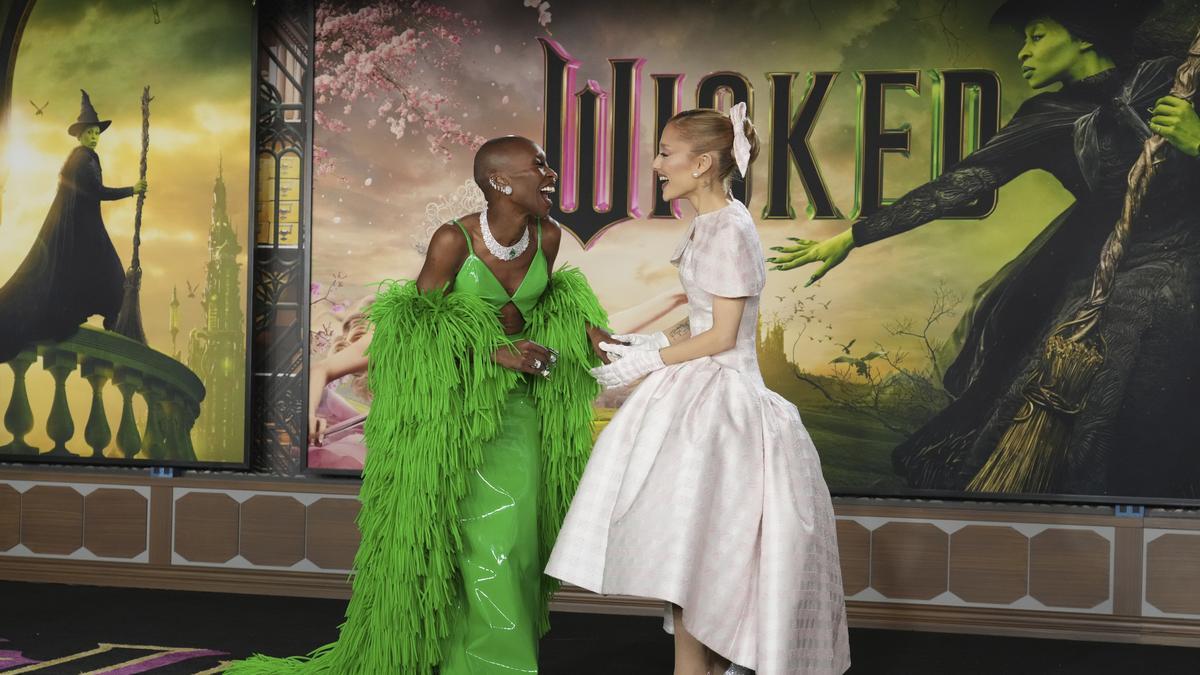
James Earl Jones, who overcame racial prejudice and a severe stutter to become a celebrated icon of stage and screen — eventually lending his deep, commanding voice to CNN, The Lion King, and Darth Vader — has died. He was 93. His agent, Barry McPherson, confirmed Jones died Monday morning at home in New York’s Hudson Valley region. The cause was not immediately clear.
The pioneering Jones, who in 1965 became one of the first African American actors in a continuing role on a daytime drama (As the World Turns) and worked deep into his 80s, won two Emmys, a Golden Globe, two Tony Awards, a Grammy, the National Medal of Arts, and the Kennedy Center Honors. He was also given an honorary Oscar and a special Tony for lifetime achievement. In 2022, a Broadway theater was renamed in his honor, encapsulating a career that inspired many and broke barriers for African American artists.
James Earl Jones cut an elegant figure late in life, with a wry sense of humor and an admirable work ethic. In 2015, he arrived at rehearsals for a Broadway run of The Gin Game having already memorized the play and with notebooks filled with comments from the creative team. He consistently demonstrated that he was always in service of the work, a testament to his enduring dedication.
Jones created such memorable film roles as Terence Mann in Field of Dreams, the boxer Jack Johnson in The Great White Hope, the writer Alex Haley in Roots: The Next Generation, and a South African minister in Cry, the Beloved Country. His versatility and depth as an actor were evident in each of these performances, adding layers and dimension to the characters he portrayed.
As a sought-after voice actor, Jones expressed the villainy of Darth Vader in Star Wars through one of the most iconic lines in cinematic history (“No, I am your father,” commonly misremembered as “Luke, I am your father”), and the benign dignity of King Mufasa in both the 1994 and 2019 versions of Disney’s The Lion King. His voice also became synonymous with authoritative news delivery, declaring “This is CNN” during station breaks. He won a 1977 Grammy for his performance on the Great American Documents audiobook, further showcasing his exceptional voice talent.
Samuel L. Jackson once said of Jones, “If you were an actor or aspired to be an actor, if you pounded the pavement in these streets looking for jobs, one of the standards we always had was to be a James Earl Jones.” This sentiment reflects the professional high bar Jones set, both in his discipline and in his expansive body of work.
Jones’s other notable films include Dr. Strangelove, The Greatest (with Muhammad Ali), Conan the Barbarian, and Three Fugitives. He also portrayed an admiral in three blockbuster Tom Clancy adaptations — The Hunt for Red October, Patriot Games, and Clear and Present Danger. These roles further cemented Jones’s status as a robust and respected figure in Hollywood.
His Broadway debut came in 1958 with Sunrise at Campobello. He would go on to win two Tony Awards for The Great White Hope (1969) and Fences (1987). He also received nominations for his performances in On Golden Pond (2005) and Gore Vidal’s The Best Man (2012).
. Celebrated for his command over Shakespeare and Athol Fugard, his later Broadway appearances included notable productions like Cat on a Hot Tin Roof, Driving Miss Daisy, The Iceman Cometh, and You Can’t Take It With You.
Jones honed his craft early in his career by performing with the New York Shakespeare Festival Theater in Othello, Macbeth, and King Lear and in off-Broadway plays. These performances laid the groundwork for his future successes and established him as a talented and versatile stage actor.
Jones was born by the light of an oil lamp in a shack in Arkabutla, Mississippi, on Jan. 17, 1931. His father, Robert Earl Jones, had deserted his wife before the baby’s arrival to pursue life as a boxer and later an actor. When Jones was 6, his mother took him to her parents’ farm near Manistee, Michigan, where his grandparents adopted and raised him.
In his autobiography, Voices and Silences, Jones wrote, “A world ended for me, the safe world of childhood.” The move from Mississippi to Michigan was intended to be a positive turning point; however, for him, it was filled with emotional turmoil resulting in a severe stutter. Too embarrassed to speak, he remained virtually mute for years, communicating with teachers and fellow students through handwritten notes. His speech was eventually restored with the help of a sympathetic high school teacher, Donald Crouch, who discovered Jones had a talent for writing poetry and encouraged him to read his work aloud in class.
Jones’s high school experience awakened his love for debate, oration, and ultimately acting. At the University of Michigan, he initially pursued a pre-med track but eventually switched to drama, also playing four seasons of basketball. He served in the Army from 1953 to 1955 before moving to New York, where he lived with his father and enrolled in the American Theater Wing program for young actors. Working side by side with his father, waxing floors to make ends meet, Jones found opportunities that would catapult him to stardom.
The breakthrough came in 1970 with The Great White Hope, a Pulitzer Prize-winning Broadway play depicting the struggles of Jack Johnson, the first Black heavyweight boxing champion. Jones’s portrayal earned him critical acclaim and brought him sudden stardom. When he repeated the role in the 1972 movie version, he was nominated for an Academy Award for Best Actor.
Jones’s personal life also revolved around the theater. He married two actresses in his lifetime: Julienne Marie Hendricks in 1967 and Cecilia Hart in 1982. His marriage to Hart, who was best known for her role in the CBS police drama Paris, lasted until her death in 2016, and together they had a son, Flynn Earl, born in 1983.
James Earl Jones’s legacy is one of talent, perseverance, and groundbreaking achievements. His contribution to the arts reached across generations and will be remembered for its remarkable depth and breadth. From an early life marked by challenges to becoming a symbol of excellence on the stage and screen, Jones’s story continues to inspire and uplift.
Published – September 10, 2024 12:02 pm IST
English cinema / World cinema / celebrity / death










